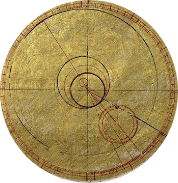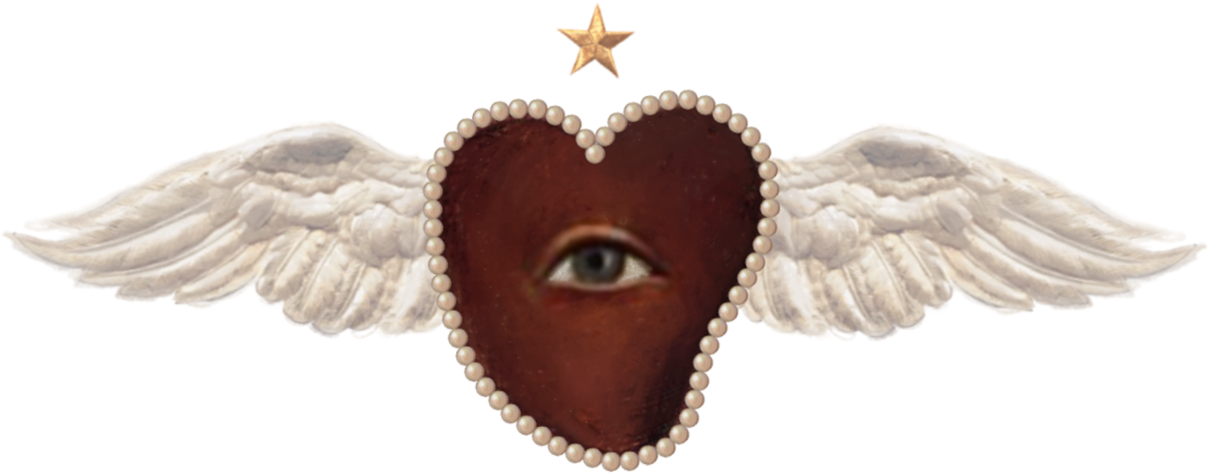Here is a man who had the gift of simpatía, a man who wrote under the spell of his own distinctively poetic and experimental literary genre. Through his unique ‘Borgesian’ style of fiction writing, Jorge Luis Borges 1 demonstrates the whirlwind of his mind 2. This 'labyrinthine' heart not only introduced the literature of Latin America to a global audience but also laid the foundation for the ‘Latin American Boom’ that carried writers such as Julio Cortazar, Gabriel Garcia Marquez, and Mario Vargas Llosa to prominence.
Stellar Wheel

virgo



Jorge Luis Borges
10 minute read
As a man of letters, Borges was described as a master of dialogue, both for his conversation and literary work, 3 4 a writer who gloried in the simple things of earth and human existence. He deeply understood his own private metaphysics, similar to Franz Kafka and Edgar Allan Poe. He created outside time and space, outside imaginary and symbolic worlds 5 6.
“I saw, close up, unending eyes watching themselves in me as in a mirror; I saw all the mirrors on earth and none of them reflected me; I saw the Aleph from every point and angle, and in the Aleph I saw the earth and in the earth the Aleph and in the Aleph the earth; I saw your face, and I felt dizzy and wept, for my eyes had seen that secret and conjectured object whose name is common to all men but which no man has looked upon -- the unimaginable universe.”
Here, Borges describes the physical body as the ultimate space of spiritual experience, a mirror that reflects all worldly objects. Borges’ dreamlike representations of reality can be interpreted as an autobiographical elaboration of his mental state, where several alternative events, infinite possibilities, and multiple universes coexist 7 8 9 It is widely accepted that Borges delighted in playing with both the text and the reader. In his works, we witness a tantalising loss of self, a focus on the pleasures of reason, reverie, and imagination of his private Universe or, better said, Multiverse.
Borges was born in Buenos Aires, Argentina, in 1899 under the starry vibrations of Virgo 10 11. This archetype of great beauty and purity is related to the Archangel Mary, who is the personification of material well-being and prosperity. The celestial Virgin’s responsibilities are many; she is the guardian of wheat harvest and distributor of grain. The wheat, held by the earthly maiden of plenty, is symbolic of reaping the fruits of your labour “for whatsoever a man soweth, that shall he also reap.”
Virgo is a symbol of introspection, self-discipline and continuity, she plants her garden and decorates her soul, and as such glows with the Spiritus Mundi that dwells inside.

If every name is …
the archetype of its thing,
Among the letters of ring, resides the ring,
And it in the word Nile al the Nile remains.
(El Golem, 1964)
Linked to this and something that was of interest to Borges is the subject of Kabbalah. Each letter in Kabbala is an energetic vortex, an instrument of God’s intelligence. By deciphering letters one moves closer towards the frequencies of blissful reawakening.
The passionate ode of these ancient teachings is: study the work, receive its energy, and express it through your physical vessel. After all, Virgo knows that the spirit in the ‘word’ creates the material ‘world.’ Borges similarly conducted himself. Through Mercury’s light blue glow, he brought the energy of the written word into the soul of the earth.
On the subject of nationalism, Borges avidly argued that nationalism is a misconception and one of the primary afflictions of our time:
“we love overemphasising our differences, if humanity is to be saved, we must focus on our affinities, the points of contact with all human beings, national borders should be abolished on the earth so that every person would be a citizen of the world”.
“If I were asked to name the chief event in my life, I should say my father’s library, I believe that my first reading was Grimm’s' Fairy Tales in an English version. I was very young; I can't remember a time in my childhood when I didn't know how to read or write. I was educated by my father's library, perhaps more than by high school or the university. Much of that formation I owe to my grandmother, who was English and knew the Bible by heart. So, I could say that I came upon literature via the Holy Ghost and by the verses, I used to hear at home.”
To have one's beautiful colours not "fit in " is often one of the toughest stories a child can experience in their book of life, and yet these stories are often very amusing and rich with insights that go on to shape that child's vistas of imagination and their individual perception of Self.
“my father advised me to write a great deal, I believe that in some way he foresaw that I would be a writer, that I had a literary destiny, and he encouraged me to fulfil it.” 19 20
Borges struggled for many years with shyness and found it hard to be recognised. Following his family’s return to Buenos Aires, this introverted bohemian made it his mission to imbue his city of birth with emotional significance. Before he succumbed to hereditary blindness, Borges found inspiration in the streets of Buenos Aires; in its dark suburbs, he found his poetry.
Our Virgo vanguard never felt contempt for his failing eyesight, nor did it keep him from achieving literary success. He viewed his blindness as a gift and resource given to him for a greater purpose 21, a purpose that existed beyond the realm of the intellect. Unsurprisingly, Borges depended on his friends and his literary colleagues to read to him and to collaborate on writing.
“All that happens to us, including our humiliations, our misfortunes, our embarrassments, all is given to us as raw material, as clay, so that we may shape our art.”
“It is love. I will have to hide or flee. The walls of my prison are growing, like an atrocious dream…”.
“I reach my centre, my algebra and my key, my mirror. Soon I will know who I am.”
Literary sources:
Alifano, R. 1984 Twenty-four Conversations with Borges: includes a selection of poems and interviews, NY: Lascaux Publishers.
Borges, J., L. 1994 Borges on Writing, US: Ecco Press Publisher
Borges, J., L. 1974 In Praise of Darkness, US: E. P Dutton and Co., Inc.
Borges, J., L. 2004 The Aleph and Other Stories, UK: Penguin Books
McNeese, T., 2008 The Great Hispanic Heritage: Jorge Lois Brogues, NY: Infobase Publishing.
Image Reference:
1. Portae Lucis by Joseph Gikatilla (1248 -1325) Augsburg, 1516 The book is a Latin translation by Paulus Ricius of Gikatilla's most influential kabbalistic work. Wikipedia commons
2. Unknown Illustrator 1854, The Idler's Progress, illustrated in the life of a young German Nobleman. British Library digital image
3. Máršan, Robert 1898 Čechové a němci r. 1848 a boj o Frankfurt, British Library digital image
4. Cameron Baxter, A Comprehensive Guide To Navigating Parallel Dimensions 1960
